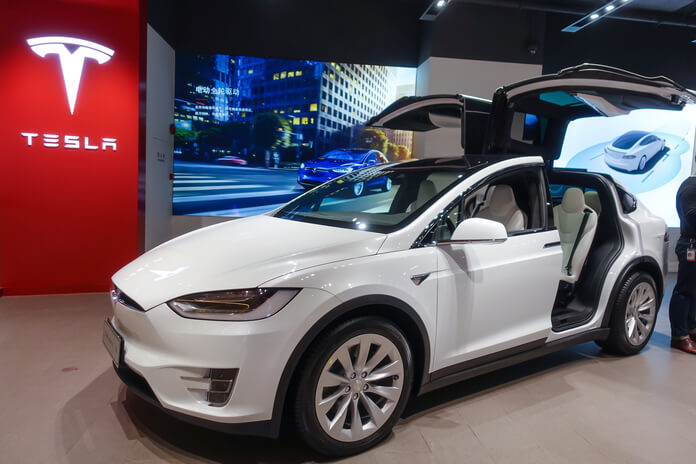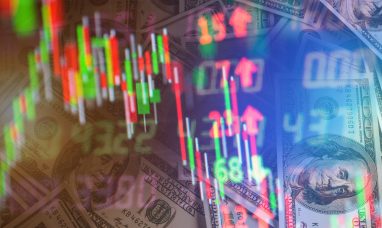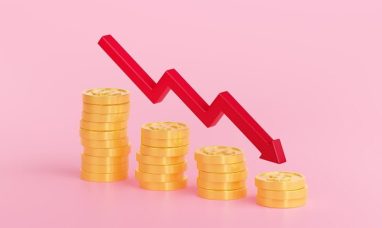According to figures released Tuesday, Tesla Inc (TSLA stock) new-car registrations in China increased dramatically last week compared to the week before. The increase in car registrations comes amid worries that China’s desire for Tesla vehicles may be hindered by growing local competition and a deteriorating economy. Tuesday saw a gain for Tesla.
According to the China Passenger Car Association, the number of Tesla vehicles registered in China last week rose to 23,109, a 46% rise over the previous week. Tesla registrations from September 19 to September 25 were likewise 27% higher than they were the prior week in September. There have been 57,180 registrations for Tesla insurance so far this month. As a result, some experts believe Elon Musk’s EV powerhouse will fall short of its target of 100,000 vehicle sales in China this month.
Local sales might still break a record in September, though, since Tesla deliveries in China soared in August and are already close to their June highs. Following capacity expansions at its Shanghai factory, Tesla (NASDAQ:TSLA) reported its August sales figures. However, there is still doubt about China’s poor demand in light of Tesla’s expanded manufacturing.
Investors are also anticipating information about Tesla’s third-quarter deliveries. On the second day of the new quarter, the firm typically releases its report.
Tesla stock (TSLA stock) vs. BYD stock
Tesla In recent weeks, China’s wait periods for new cars have significantly decreased, and Musk’s business is now providing a new insurance subsidy that effectively lowers prices.
The plant’s latest upgrades raised output capacity by about a third.
Following capacity expansions at its Shanghai factory, Tesla increased August deliveries to China to almost 77,000 vehicles. However, more than 42,000 of those were exports; therefore, the total number of Tesla vehicles delivered to Chinese customers was 34,502.
According to an internal email acquired by Eletrek, Tesla (NASDAQ:TSLA) anticipates a “very high number” of car deliveries worldwide by the conclusion of the third quarter.
The third quarter will likely see Tesla deliver a record number of vehicles, according to several analysts. Deliveries are anticipated to be between 350,000 and 370,000.
Tuesday’s market trading saw a 2.6% increase in Tesla shares, reaching 283.14. The stock increased 0.3% to end Monday at $276.01.
China EVs versus Tesla
Model 3 and Model Y manufacturing was increased by Elon Musk in China, although they are not brand-new models. Demand for aging EVs from other manufacturers has significantly decreased.
Meanwhile, BYD (BYDDF), Nio (NIO), Li Auto (LI), and XPeng are new rivals for Tesla and its Model 3 in the China EV market (XPEV).
For the first time, BYD, the biggest manufacturer of EVs and plug-in hybrids in the world and the biggest seller of pure electric vehicles in China, is going head-to-head with Tesla.
A Model 3 and BYD’s Seal sedan are similar in size and range, but the Seal costs $10,000 less. BYD started making deliveries in late August; 1,726 were made in the entire month. However, future deliveries are anticipated to soar.
Last week, BYD registered 44,960 new vehicles, a 28% increase, keeping the lead among Chinese EV manufacturers. Nio, a luxury EV company, had a 63% spike in car registrations last week to 2,844. With its ET5 car, which is priced slightly above the Model 3, Nio is attempting to compete with Tesla for market share. On September 30, ET5 deliveries will start.
The number of XPeng vehicles registered rose 11% to 1,975 last week. On Saturday, the most recent car registration data will be released before monthly sales from XPEV, Li Auto, and Nio. BYD is anticipated to report in a day or two.
In contrast to its earlier prediction of 27,000–29,000 automobiles, Li Auto stated on Monday that it now anticipates delivering about 25,500 vehicles in the third quarter.
Although the underlying demand for the company’s automobiles is still strong, Li Auto claimed that the reduction was “a direct consequence of the supply chain limitation.”
Featured Image: Megapixl © Photomall















